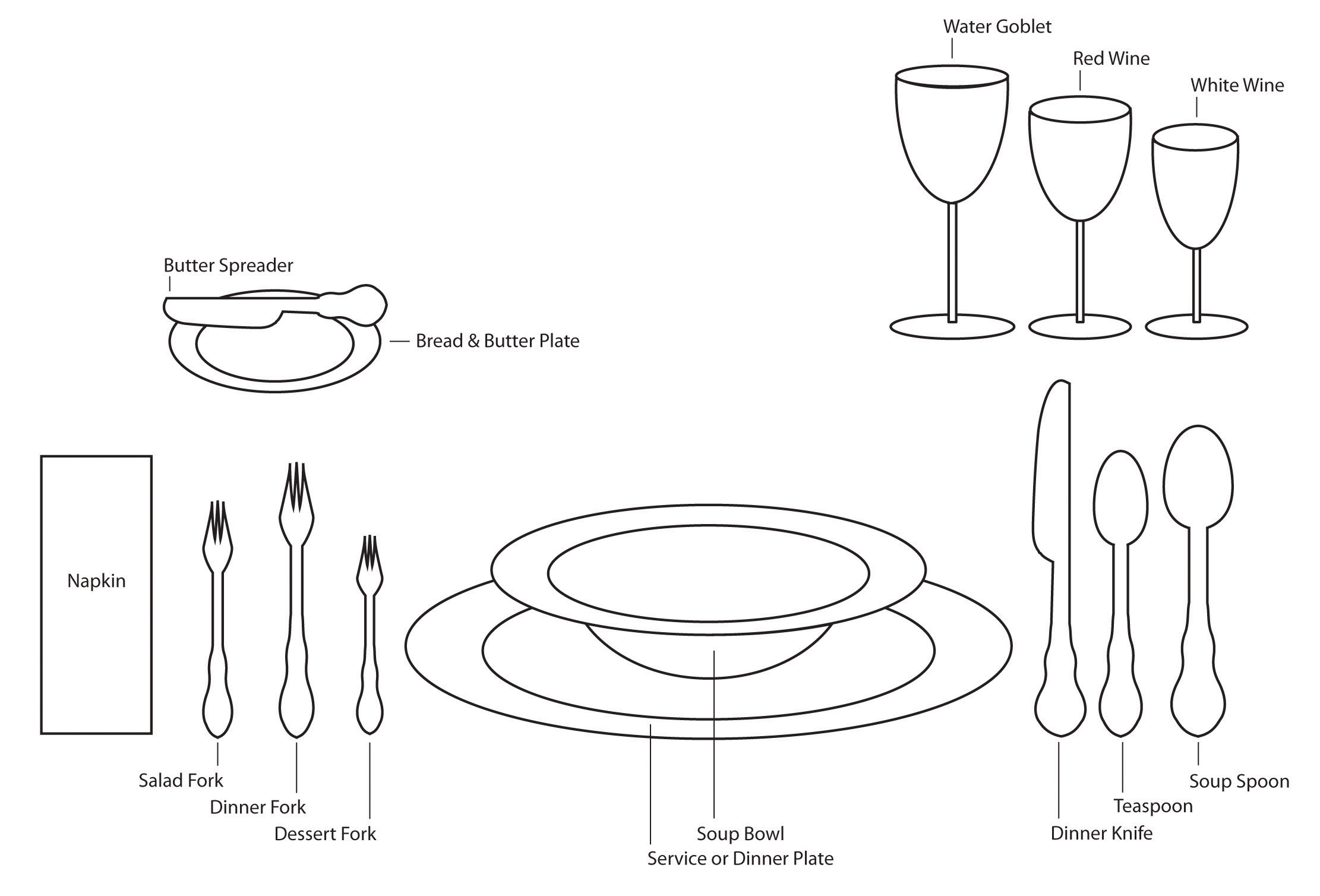This is “Career Growth: Impression Management”, section 13.3 from the book Beginning Human Relations (v. 1.0). For details on it (including licensing), click here.
For more information on the source of this book, or why it is available for free, please see the project's home page. You can browse or download additional books there. To download a .zip file containing this book to use offline, simply click here.
13.3 Career Growth: Impression Management
Learning Objective
- Be able to explain etiquette aspects that can help you achieve career success.
Perhaps the most important components to career success are how we manage our reputation and the impression we give to others both in person and online. Learning how to manage our reputation can be a key ingredient to developing good human relations, which often results in career success. Although much of this will be a review, it is important to discuss key elements to making a good impression in a professional environment.
Introductions
An introduction to a person is possibly one of the most important aspects to etiquette. This nonverbal behavior can send positive or not-so-positive messages to a person with whom you want to make a good impression.Lorenz, K. (2009, September 9). Six tips for a perfect handshake. Career Builder, accessed March 15, 2012, http://www.careerbuilder.com/Article/CB-431-Getting-Hired-Six-Tips-for-a-Perfect-Handshake/ Here are the components to a good handshake and introduction:
- Firm handshake. A firm handshake shows self-confidence. Try not to make it too firm or too soft. Do not place your hand on top of the other person’s hand while shaking.
- Web to web. When you shake someone’s hand, put your right hand out and the web of skin between your thumb and pointer finger should touch the web of the other person. Try to avoid grabbing someone’s fingers when shaking hands, as this could send a negative message.
- Eye contact. As you shake the person’s hand, make direct eye contact. This can be challenging for some people who grew up in a culture where direct eye contact would be considered rude. Make sure to smile.
- Say your name and repeat the other person’s name. As you are making eye contact and shaking hands, you might say something like, “Hi, my name is Laura Portolese Dias. It is a pleasure to meet you.” When they say their name, make sure to repeat it, which will make it easier to remember. In fact, if they give you a business card, perhaps write down some of the things you discussed. This way, when you meet again, you are more likely to connect their name with a personal or professional interest.
- Introducing two people. If you know two people and are introducing them, say both people’s names and try to tell them something they have in common they can discuss. For example, “Casey, meet Ms. Robins. Both of you went to the University of Washington-Bothell campus.” This gives them a starting point to begin their conversation.

A handshake should be firm but not too firm. The web of the other person’s hand should touch yours, as to avoid shaking someone’s fingers!
© Thinkstock
Good handshakes and introductions are important, but they also take practice. Often, people are too worried about the impression they are making to focus on their handshake, eye contact, and other aspects. The more comfortable you can get with this, the more second nature it will become and the better your human relations will be!
Dining Out
Often a time will come when you must have a business dinner with your supervisor or colleagues. When we dine alone or with our family, sometimes we do not pay as much attention to table manners as we should. Showing you have proper table manners in a business setting not only conveys high emotional intelligence but also can create positive relationships with others. Let’s discuss this as if we are starting a dinner from the beginning.

Sometimes the amount of dinnerware can be overwhelming! For forks, use the last one out and work your way in. Make sure the napkin goes on your lap. Also be aware, your bread and butter plate will always be on your left, while your glasses will be on your right.
First, it would be proper to make sure the host is seated before you sit. Unless the host is male, in which case he would wait until all females are seated until he takes his seat. Likewise, in any situation, such as a job interview, you should never sit unless invited. Next, you will want to put the napkin on your lap. Avoid wiping your face or nose with the napkin. If you need to get up, leave the napkin on either side of your plate.
Try to order within the same price range as your host. Never order the most expensive menu item. Also avoid ordering alcohol unless the host is ordering it, and even then, never drink more than your limit in a business situation. When food is served, you should not begin eating until everyone has received their food.
Any food dish on the left is yours; any glass that is yours is on the right. Most silverware is set so the one you will use first is on the outside, and you work your way in. For example, the appetizer fork might be on the outside, then the salad fork, then the dinner fork. When you are finished with your meal, rest the silverware crosswise on your plate to indicate you are done.

Silverware resting together indicates to the server that you are finished with your meal.
If you are in a situation where food should be passed, always pass from left to right. Avoid reaching past people’s plates to get something. If someone asks you for salt and pepper, always pass both together, even if both were not requested. It goes without saying, but don’t talk with your mouth full or play with food on your plate. If you don’t like something, try to take a few bites, but it is ok to leave food. If you have special dietary restrictions—for example, if you are a vegetarian—don’t make a big deal out of it and just avoid eating those things you wouldn’t normally eat.
Always say please and thank you to anyone who does something for you, such as refilling your water or removing your plate. These basic manners can go a long way in showing politeness.
When the check comes and there is no obvious host, reach for it. If there is an obvious host, such as your supervisor had told everyone he was going to take the department to dinner, it is fine not to reach for the check. If people are splitting the check, it is normal to split it evenly, unless of course people had significantly different-priced items. For example, if one person had only a salad and another person had the porterhouse steak, splitting might not be appropriate.United States dining etiquette Guide, accessed March 15, 2012, http://whatscookingamerica.net/Menu/DiningEtiquetteGuide.htm Likewise, if you had drinks but someone else didn’t, offering to pay more would be appropriate. It is also customary to tip 15 to 20 percent, and not doing so would be considered in poor taste. Please note that dining etiquette discussed here is specific to the United States. Before you travel, consider doing research on proper etiquette.
Clothing
Dress is another consideration with etiquette. Dress will vary greatly from region to region. For example, in the Seattle area, it is normal for many people to wear jeans to work, while in other parts of the country, this would be considered inappropriate. When deciding what to wear, it is always best to be a bit overdressed than underdressed. For job interviews, jeans or shorts would rarely, if ever, be acceptable. Normally in job interviews, dressing one “step up” from what people wear at the company is a good rule of thumb.
Showing too much skin or revealing tattoos or facial piercings in some work environments may prevent upward movement in a company, as it sends the wrong message to your boss, or future boss (fair or not). In a study by Peter Click, women in high-level positions who dress in what is seen as sexy attire are viewed as less competent, regardless of their skill sets.Sinberg, L. (2009, July 22). What not to wear to work. Forbes, accessed May 21, 2012, http://www.forbes.com/2009/07/22/office-fashion-sexy-forbes-woman-style-clothes.html Fair or not, there are many unspoken rules about what is appropriate and what is not. The best thing to do is to look at what the successful people around you are wearing. For example, if all of the men in the workplace wear suit jackets and rarely take them off, this is an indicator of expected workplace dress. If all of the women in the office wear closed toed shoes and leave the flip flops at home, it might be a good idea for you to do the same as well. Personal style and individuality are important, but in some professions, it makes sense to err on the side of caution when choosing a work wardrobe.
Technology

Looking at your phone while talking with someone is the same thing as turning your back to them in the middle of a conversation.
Another important thing to mention is the use of technology. Although many people do it, the increased use of technology has actually made people more rude; according to an Intel survey, 9 of 10 Americans report they’ve seen others misuse technology and 75 percent agree that mobile etiquette is worse than it was a year ago.Bruzzese, A. (2011, March 27). Technology increases rudeness quotient. TribLive Business News, accessed March 15, 2012, http://www.pittsburghlive.com/x/pittsburghtrib/business/s_729376.html Here are some examples of basic etiquette when it comes to technology:
- Don’t look at your phone while talking with someone else.
- Don’t use a phone for calls or texts while at the dinner table.
- Don’t talk loudly on the phone in a public space.
- Avoid letting “text speak” cross over into e-mails (i.e., “tho” is OK for texts, but spell it out—“though”—for e-mails).
- Try to avoid multitasking with your phone in inappropriate places, such as when in the restroom.
- When sending e-mails, avoid clogging up peoples’ e-mail boxes with “reply all” messages.
- Use spell-check for e-mails.
- Try to answer e-mails within twenty-four hours, even if it is to say, “I am not sure about this but I will get back to you.”
Another note related to technology is the use of social media and the Internet.
Reputation Management
Many companies pay hundreds, even thousands of dollars every month to monitor and clean up their online reputations. The process of monitoring your online reputation is called reputation management. Reputation.com, one of hundreds of firms that specializes in “fixing” online reputations, has become popular for companies looking to enhance their online image. Reputation management isn’t just for companies—individuals are using these services to make unflattering things on the Internet about them disappear.Tozzi, J. (2008, April 30). Do reputation management services work? Businessweek, accessed May 22, 2012, http://www.businessweek.com/smallbiz/content/apr2008/sb20080430_356835.htm
Anything posted on the Internet, from a picture on Facebook to a comment on a blog, will be in cyberspace indefinitely. Consider the case of a New York professor. Eight years earlier, he had been charged with receiving grant money wrongfully. If you googled his name, you would find a press release listing this charge as one of his name’s top search results, even though he had paid the $2,000 fine.Bilton, N. (2011, April 1). Erasing the digital past. New York Times, accessed May 22, 2012, http://www.nytimes.com/2011/04/03/fashion/03reputation.html?pagewanted=all Not exactly something he would want a potential or current employer to see! This is exactly why it is important in career development to be aware of the kinds of things you post—whether you are looking for a job or already have a job. For example, thirteen Virgin Airlines employees were fired for a chat they had on Facebook about the plane’s safety, along with negative comments about customers.Bloomberg News. (2008, November 1). Facebook chat gets 13 Virgin Airlines employees fired, accessed March 22, 2012, http://www.nydailynews.com/news/money/facebook-chat-13-virgin-airlines-employees-fired-article-1.335199 In yet another example,Popkin, H. (2009, March 23). Twitter gets you fired in 140 characters or less. MSNBC.com, accessed May 22, 2012, http://www.msnbc.msn.com/id/29796962/ns/technology_and_science-tech_and_gadgets/t/twitter-gets-you-fired-characters-or-less/ a job seeker posted the following to Twitter: “Cisco just offered me a job! Now I have to weigh the utility of a fatty paycheck against the daily commute to San Jose and hating the work.” And Cisco, who regularly monitors the Internet for mentions of their name (reputation management), replied, “Who is the hiring manager. I’m sure they would love to know that you will hate the work. We here at Cisco are versed in the web.” Needless to say, the job offer to this future employee was rescinded.
Websites that allow for professional networking can be a great tool but can also be detrimental. For example, BG, a natural gas company, had an employee post his resume on LinkedIn and clicked the “job seeker” box. When his employer saw this, he was fired for expressing interest in other job opportunities, along with his posting of disparaging comments about his employer.Nichols, S. (2012, January 5). Employee challenges dismissal after posting CV on LinkedIn. V3 Technology News, accessed May 21, 2012, http://www.v3.co.uk/v3-uk/news/2135631/claims-firing-linkedin-cv-posting
So how exactly can you monitor your online reputation? Here are some tips:
- Google yourself often and see what the search results return.
- Consider changing your privacy settings in Facebook, so people you are not friends with cannot view your profile.
- Change your Facebook setting so you must approve posts that “tag” you.
- Be aware of your company’s policy on posting resumes on websites like LinkedIn.
- Do not talk about work on Twitter, Facebook, or any other social media site.
- Never mention your company name on social media sites.
Managing your online reputation can make sure that when an employer or potential employer sees your online persona, they are seeing the side you want them to see. It will show them that you represent the company in a positive light, which can enhance career success.
Your Personal Online Brand
(click to see video)This video discusses the importance of managing your online reputation.
General Etiquette for Career Success
We should discuss other parts to etiquette that would be considered general politeness and show professionalism, both skills that create positive relationships with others. Some of these include the following:
- Be on time for appointments. If you can’t be on time, call if you will be more than five minutes late.
- RSVP when people send an invitation.
- Always use please and thank you.
- Always send thank you notes when someone goes out of their way for you.
- Apologize if you make a mistake.
- Always bring a gift, wine, or flowers to the host when dining at another person’s home.
- Hold the door—whether you are male or female—if you get to the door first.
- Make eye contact.
- When given a business card, always look at it before tucking it away. Do not put it in a pocket.
- Avoid hording a conversation. Learn how to ask questions and be interested in what others have to say, too.
- Don’t use swear words in a professional environment.
- Don’t interrupt people.
Understanding and following general etiquette can help boost your career. People who do not have manners may not be as respected, and as a result, they may not be promoted or experience career growth. Etiquette is part of social intelligence skills, which—as we discussed in Chapter 2 "Achieve Personal Success"—are proven to help people attain career success. Speaking of career growth, how does one actually grow in their career? That will be the topic of Section 13.4 "Career Growth: Personality and Strategies".
Key Takeaways
- To ensure career success, there are a few main things to be concerned about. First impressions are important, so having a firm handshake that is web to web is important.
- When meeting someone, shake their hand, look them in the eye, and repeat their name to help you remember their name.
- When dining, there are many etiquette rules. For example, place the napkin on your lap and use the right forks and glasses. Generally speaking, the first forks you will use are farthest from the plate, and then you work your way in. Dinnerware, such as a bread plate, is always on the left and glasses are always on your right.
- Basic commonsense etiquette such as not using the napkin on your face or nose and waiting to begin eating until everyone has their food would be important to consider in dining etiquette.
- The use of technology has increased and so has the rudeness, some studies show. Basic etiquette for phones includes not texting while you are having a face-to-face conversation with someone and avoiding speaking loudly.
- Other things to consider regarding technology might include not copying everyone on an e-mail, making sure to use spell-check, and using proper grammar.
- Make sure to engage in careful consideration before posting comments on social media. This is called reputation management.
- Other tips for etiquette include sending thank you cards (not e-mails), being on time, keeping commitments, and making sure to involve others in a conversation.
Exercises
- Shake the hands of five people you know well. Ask them to give you feedback on your handshake, and then write at least two to three paragraphs about it.
- Visit a public place such as a mall or restaurant. Observe how people use technology when they are alone and when others are around them. What did you observe? What would be considered rude and what would be considered acceptable and normal behavior? Write four paragraphs on your observations and bring to class to discuss.




